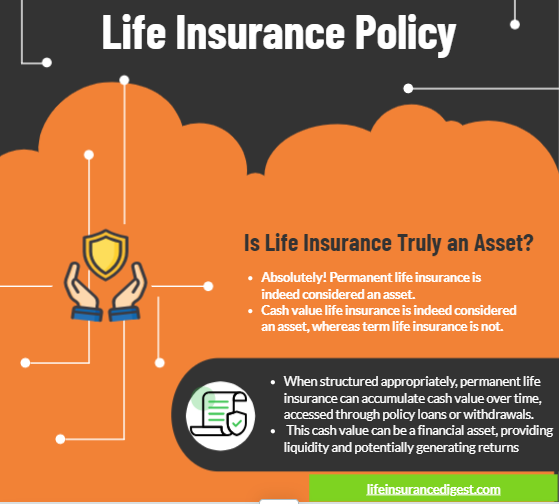Assets
Assets are resources that generate income or provide some other future benefit.
Example: Investment real estate property is a classic example of an asset.
It typically generates cash flow income through rent payments, appreciates over time, and offers tax benefits such as depreciation and amortization.
When you own an investment property, you receive rental income regularly, which adds money to your pocket.
Additionally, as the property value appreciates, you build equity, further enhancing your wealth.
This aligns with Robert Kiyosaki’s definition of an asset, as it puts money into your pocket.
Liabilities
Liabilities are financial obligations or debts that require you to make payments.
Example: Your primary residence can be considered a liability.
Despite being a valuable asset in providing shelter, it typically doesn’t generate income and requires ongoing financial commitments such as mortgage payments, maintenance costs, and property taxes.
Owning your primary residence takes money out of your pocket because you must make monthly mortgage payments, cover maintenance expenses, and pay property taxes.
Unlike investment property, your primary residence doesn’t generate income for you; instead, it incurs costs, aligning with Kiyosaki’s definition of liability.

Life Insurance as an Asset:
When it comes to categorizing life insurance as an asset, it boils down to the type of policy in question.
Cash value life insurance is indeed considered an asset, whereas term life insurance is not.
Illustration: Permanent life insurance, such as dividend-paying whole life insurance, can be viewed as both an asset and a liability, depending on how it’s utilized.
- As an Asset: When structured appropriately, permanent life insurance can accumulate cash value over time, accessed through policy loans or withdrawals. This cash value can be a financial asset, providing liquidity and potentially generating returns.
Understanding the differences between assets and liabilities is crucial for managing personal finances effectively.
While assets contribute to wealth accumulation by generating income or appreciating, liabilities represent financial obligations that require ongoing payments.
Life insurance can serve as both an asset and a liability, depending on its structure and how it fits into your financial plan.
Term life insurance.
Term life insurance operates as a straightforward insurance policy, providing a death benefit without accumulating any cash value.
Because of this, it’s not considered an asset in itself. However, it can transform into an asset for your beneficiary upon your passing, as the death benefit can provide financial security.
Despite lacking cash value, term life insurance plays a crucial role in ensuring immediate financial stability and peace of mind.
Permanent Life Insurance.
Unlike term life, permanent life insurance builds cash value over time, making it an asset that can appreciate in value.
With cash-value life insurance, the cash value and death benefit can increase over time, providing a valuable asset for the policyholder.
This version aims to present the information in a more user-friendly way, with simplified language and more precise distinctions between term and permanent life insurance.

Categories of Life Insurance
1. Term Life Insurance does not qualify as an asset.
2. Whole Life Insurance stands as an asset.
3. Universal Life Insurance is recognized as an asset.
4. Indexed Universal Life insurance holds asset status.
5. Variable Life insurance is classified as an asset.
Benefits of Taking the Insurance
1. Tax-Free Death Benefit
Life insurance payouts are tax-free when received directly by your beneficiary.
This is significant because it ensures your beneficiary receives the full death benefit without income tax deductions.
A few exceptions exist to this rule, such as if the death benefit pushes your estate above the federal estate tax exemption threshold.
If your estate is the beneficiary and your assets are not held in a living trust.
2. Tax-Deferred Growth of Cash Value
Whole life insurance functions as an asset where the cash value grows without immediate taxation.
A well-designed whole-life policy ensures guaranteed cash value growth, and you might not face taxes on this growth if you choose to access it through policy loans.
3. Policy Loans Without Tax Worries
When you borrow from your life insurance policy, you’re tapping into your cash value, which acts as collateral. Good news: according to the Internal Revenue Code, policy loans don’t count as taxable income.
4. Asset Protection with Life Insurance
Cash value life insurance offers an extra layer of security by shielding your assets. Many states provide creditor protection, safeguarding your policy’s cash value from potential claims or judgments.
Final Thoughts
In conclusion, whether life insurance qualifies as an asset depends on the type of policy.
Permanent policies like whole life insurance are considered assets due to their ability to accumulate cash value, which grows tax-deferred.
This cash value can be accessed through loans or withdrawals, boosting one’s financial well-being. This resonates with Robert Kiyosaki’s asset definition, which focuses on generating income.
On the other hand, term life insurance lacks cash value accumulation and functions merely as a short-term financial safety net, falling short of being classified as an asset.
Read More!